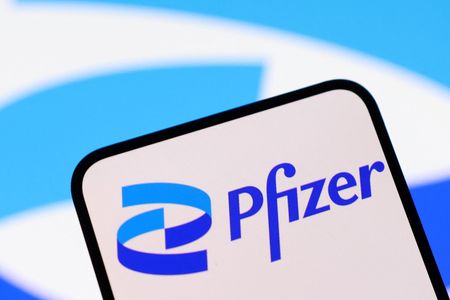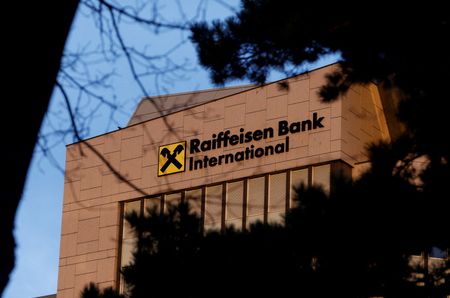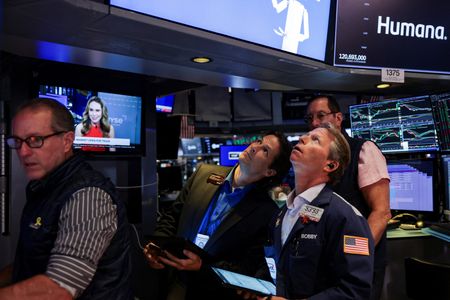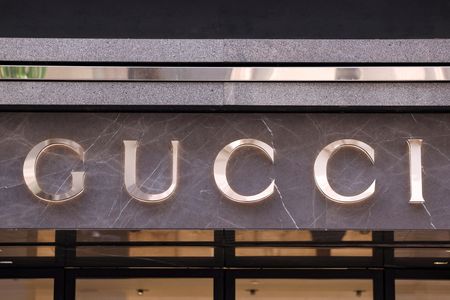By Bhanvi Satija and Michael Erman
(Reuters) -Pfizer raised its full-year profit forecast on Tuesday while reporting second-quarter results that topped Wall Street estimates, and said it expects to benefit from further cost-cutting across its research and manufacturing operations.
The New York-based drugmaker’s shares jumped 4% to $24.49 in early trading.
Pfizer shares have lost more than half their value from their pandemic-era highs as it deals with waning revenue from COVID products and looming patent expirations for key drugs. In response, the company launched a major cost-cutting program.
Pfizer said it was on track to deliver $7.2 billion in net savings by the end of 2027, about $4.5 billion coming by the end of 2025.
J.P. Morgan analyst Chris Schott said the quarterly beat and forecast raise did not come as a surprise given the company’s better-than-expected cost management, and that Pfizer could further raise its profit target as the year progresses.
The company now expects adjusted earnings of $2.90 to $3.10 per share, up from its prior view of $2.80 to $3.00. The forecast includes a one-time charge of 20 cents per share related to its licensing deal with China’s 3SBio for an experimental cancer treatment.
“Pfizer continues to lean on cost management as the main lever to drive performance going forward,” said Daniel Barasa, portfolio manager at Gabelli Funds, which owns Pfizer’s shares.
The pharmaceutical industry is facing intense pressure from U.S. President Donald Trump to lower prices Americans pay for prescription medicines, while preparing for 15% tariffs on imports from the European Union.
Pfizer shares had fallen over 11% this year, compared to a 1.7% decline for the broader NYSE Arca Pharmaceutical Index.
The company said its forecast also absorbs the impact of currently imposed tariffs on goods imported from China, Canada and Mexico, as well as potential price changes this year based on the letter it received from Trump on July 31.
“We continue to be actively engaged with policymakers as we navigate a complicated and rapidly evolving geopolitical environment,” said CEO Albert Bourla in prepared remarks.
Pfizer has said it has enough manufacturing capacity across its 10 U.S. sites to mitigate any tariff impact and is open to shifting some production to those facilities.
Total quarterly sales of $14.65 billion topped analysts’ estimates by over $1 billion, according to LSEG data, and included a $22 million favorable impact from foreign exchange.
‘NOT A GOOD SIGN’
Despite the beat, Pfizer maintained its full-year sales forecast of $61 billion to $64 billion. Two investors said the company was being conservative.
“I think that they’re just trying to balance the outlook over the next 12 to 18 months from where they grow revenue as it starts to fall off as some of those more popular drugs turn generic,” said Brian Mulberry, portfolio manager at Zacks Investment Management.
The blood thinner Eliquis, which Pfizer shares with Bristol Myers Squibb, could start facing U.S. generic competition in 2028. It had sales of $2 billion for the quarter, while analysts were expecting $1.94 billion.
Sales of antiviral COVID-19 treatment Paxlovid of $427 million for the quarter far exceeded analysts’ expectations of $244.4 million.
COVID vaccine Comirnaty, which Pfizer makes with German partner BioNTech, brought in sales of $381 million. Analysts were expecting $188 million.
Quarterly sales of the heart disease treatment sold under brand names Vyndaqel and Vyndamax were $1.62 billion, slightly above estimates of $1.59 billion.
On an adjusted basis, Pfizer earned 78 cents per share for the second quarter, topping analysts’ expectations by 20 cents.
David Wagner, portfolio manager at Aptus Capital Management, said that while the company should be credited for its near-term execution, concerns about long-term growth remained.
“It’s just not a good sign where you’re cutting costs because there’s a lack of growth in the future for your company,” he said.
(Reporting by Bhanvi Satija and Mrinalika Roy in Bengaluru and Michael Erman in New York; Editing by Anil D’Silva and Bill Berkrot)











